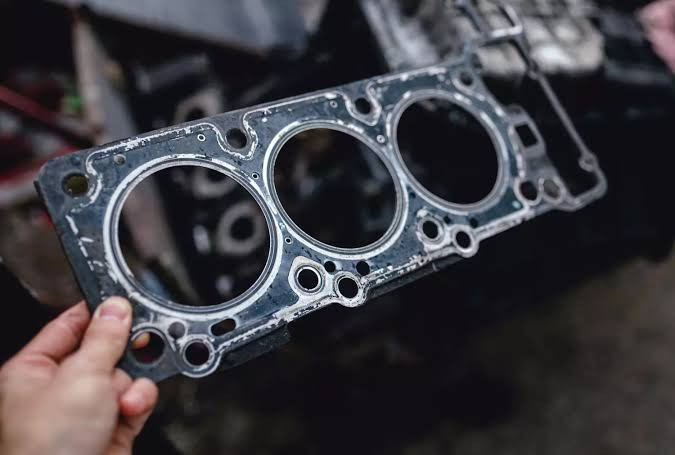A head gasket is a very important part of your engine. It seals the gap between the engine block and the cylinder head, where the pistons move up and down. The head gasket prevents the air, fuel, oil, and coolant from mixing with each other. This way, your engine can run smoothly and efficiently.
But sometimes, the head gasket can get damaged or worn out. This can cause it to leak, which means that some of the fluids or gases can escape or enter the wrong places. This can affect your engine performance in many ways, depending on what kind of leak it is. Here are some of the most common types of head gasket leaks and how they affect your engine:
Compression to Air Leak
This is when the air and fuel mixture that is supposed to go into the cylinders leaks out through the head gasket. This can cause a loss of power, because there is less air and fuel to burn. It can also make your engine noisy, because the escaping air can create a hissing or popping sound.
Compression to Coolant Leak
This is when the air and fuel mixture that is supposed to go into the cylinders leaks into the coolant system. This can cause a little power loss, because there is less air and fuel to burn. It can also make your exhaust smell like antifreeze, because the coolant gets burned along with the air and fuel. It can also cause your coolant to leak or get pressurized, which can overheat your engine.
Oil to Coolant Leak
This is when the oil that is supposed to lubricate the engine parts leaks into the coolant system. This can cause oil and water to mix, which is bad for both the engine and the coolant. Oil and water do not mix well, and they can form a thick sludge that can clog your engine or radiator. This can reduce your engine performance and cause overheating.
Coolant to Cylinder Leak
This is when the coolant that is supposed to cool the engine leaks into the cylinders. This can cause water to fill the combustion chamber, which is where the air and fuel burn. Water is not compressible, which means that it cannot be squeezed by the piston. This can damage your engine, because the piston can hit the water and bend or break. Water and oil also do not burn well, and they can gum up your engine.
How to Prevent and Fix a Head Gasket Leak
A head gasket leak is usually caused by overheating or too much pressure in the engine. This can happen if you drive your car too hard, or if there is a problem with your cooling system or boost control. To prevent a head gasket leak, you should always check your coolant level and temperature, and avoid driving your car when it is overheating. You should also service your car regularly and follow the manufacturer’s recommendations.
If you suspect that you have a head gasket leak, you should take your car to a mechanic as soon as possible. A mechanic can diagnose the type and severity of the leak, and recommend the best course of action. Sometimes, the leak can be fixed by adding a sealant or replacing the head gasket. Other times, the leak can be too severe and require a more extensive repair or even a new engine.
A head gasket leak is a serious issue that can affect your engine performance and safety. You should always be aware of the signs and symptoms of a head gasket leak, and take action before it gets worse. By doing so, you can save your engine and your money.

Comments (0)
Please login to join the discussion
Be the first to comment on this article!
Share your thoughts and start the discussion